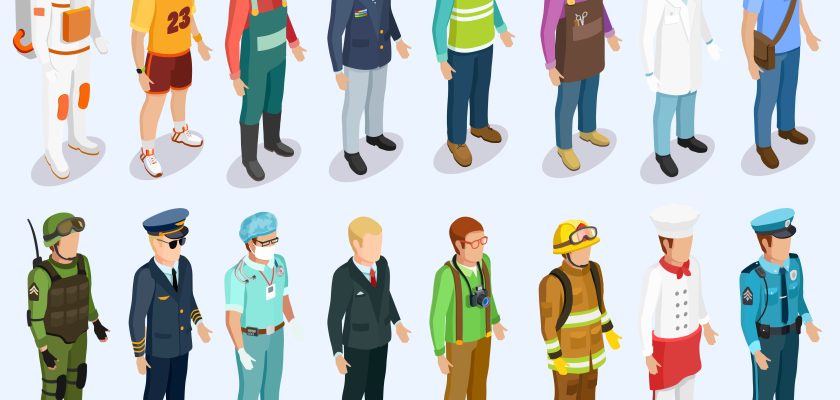Introduction
The late 1980s marked the beginning of a transformative period in the world of work, as technological advancements, globalization, and changing societal norms gave birth to an ever-expanding array of career options. This essay explores the evolution of career choices from that era to the present day, highlighting the challenges and benefits that have accompanied this transformation. Additionally, we will discuss how the proliferation of career options has shaped the world in various ways.
I. The Late 1980s: Limited Choices
In the late 1980s, career options were far more limited compared to today. Many individuals pursued traditional careers such as teaching, medicine, law, engineering, and manufacturing jobs. The concept of freelancing, remote work, and startups was relatively uncommon.
Challenges:
- Limited Diversity: Career options were often constrained by gender, race, and social class, limiting opportunities for marginalized groups.
- Job Security: Most careers offered stable, long-term employment, but job security often came at the expense of innovation and adaptability.
- Technological Constraints: The absence of the internet and advanced communication technologies restricted access to information and global opportunities.
Benefits:
- Predictability: Traditional careers provided a sense of stability and a well-defined career trajectory.
- Economic Security: Many individuals enjoyed reliable income and employer-provided benefits.
- Clear Career Paths: Established career paths offered clear steps for advancement.
II. The 1990s: Technological Advancements and Emerging Fields
The 1990s brought significant technological advancements, such as the rise of personal computing and the World Wide Web. These developments began to expand career options and reshape industries.
Challenges:
- Skill Gap: Rapid technological changes created a gap between those who could adapt and those who couldn’t, exacerbating inequality.
- Job Disruption: Some traditional careers faced disruption as automation and globalization started to impact job security.
- Information Overload: The internet introduced a deluge of information, making it challenging to navigate career choices effectively.
Benefits:
- New Opportunities: Emerging fields like IT, e-commerce, and digital marketing opened up fresh career possibilities.
- Entrepreneurship: The ease of starting small businesses and the growth of startups empowered individuals to pursue their entrepreneurial dreams.
- Global Connectivity: The internet enabled remote work and international collaboration, expanding career horizons.
III. The 2000s: The Gig Economy and Remote Work
The 2000s saw the rapid growth of the gig economy and remote work options, providing people.Individuals now have more options to choose from when it comes to their career paths, with increased flexibility.
Challenges:
- Income Insecurity: Gig workers often lacked benefits and job security, leading to financial instability for many.
- Work-Life Balance: The blurred lines between work and personal life raised concerns about burnout and mental health.
- Increased Competition: The ease of online job searching and freelancing platforms led to increased competition in many fields.
Benefits:
- Flexibility: Gig work and remote jobs allowed individuals to tailor their careers to their lifestyles.
- Diverse Income Streams: Multiple income streams became more accessible through side gigs and freelance work.
- Global Talent Pool: Organizations could tap into a global talent pool, fostering diversity and innovation.
IV. The 2010s and Beyond: Diversity and Specialization
In the 2010s and beyond, career options exploded further, driven by technological innovation, globalization, and evolving societal norms.
Challenges:
- Overwhelm: The sheer volume of career options can be overwhelming, making decision-making challenging.
- Precarity: Some industries, like journalism and retail, faced job insecurity and decline due to digital disruption.
- Environmental Concerns: The pursuit of certain careers raised ethical questions about sustainability and environmental impact.
Benefits:
- Diversity and Inclusion: Greater awareness of diversity issues has led to more inclusive career options and workplaces.
- Specialization: Niche careers have emerged, catering to specific interests and skills.
- Remote Work Revolution: The COVID-19 pandemic accelerated the adoption of remote work, allowing for even more career flexibility.
V. Shaping the World
The proliferation of career options has had a profound impact on society, the economy, and individuals’ lives:
- Economic Growth: The diversification of career options has fueled economic growth by fostering innovation and specialization.
- Cultural Shifts: The changing world of work has influenced cultural norms and values, promoting work-life balance and diversity.
- Technology and Connectivity: The expansion of career options has been closely intertwined with technological advancements, enabling global collaboration and the sharing of knowledge.
Conclusion
From the late 1980s to the present day, the world of work has undergone a remarkable transformation. Career options have multiplied, presenting both challenges and benefits. This evolution has reshaped the world, fostering economic growth, cultural shifts, and greater technological connectivity. While the diversity of career options may present challenges in decision-making, it ultimately empowers individuals to shape their careers according to their passions and values, contributing to a more dynamic and inclusive global workforce.


